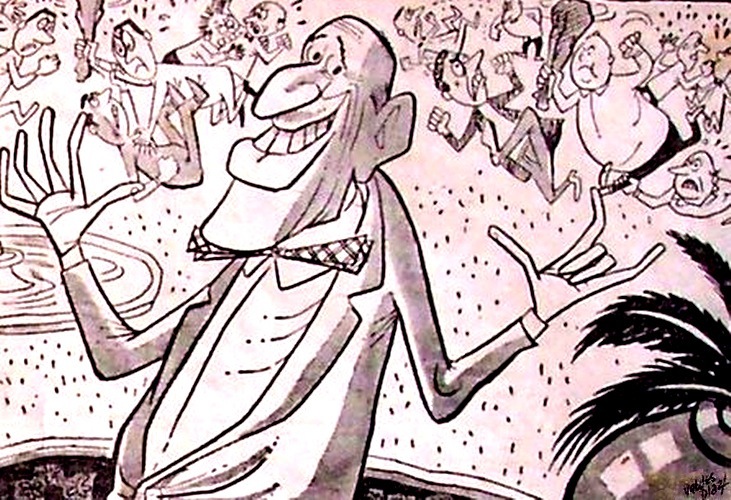February 28, 1958
On 28-Feb The Cuban National Episcopate of the Catholic Church undertaking a peace initiative, issued an exhortation for a peaceful resolution of the national crisis: "Pro Peace" (En favor de la paz). As coverage in the New York Times acknowledged, at that time 1958 election plans were still progressing despite concerted efforts by Castro to derail them, including intimidation of candidates and potential candidates.
On 6 March Church bishops appointed a Concord Commission (Comision de la Concordia) popularly known as the Harmony Commission, and visited Batista advocating the formation of an “Unity Government”. The commission was composed of former President Grau San Martín, Raúl de Cárdenas (former Vice President), Gustavo Cuervo Rubio (former Vice President), Víctor Pedroso (President of the National Association of Cuban Banks), and Pastor González (a priest).
The church put its full weight behind this initiative, through its highest officials, the signers of the exhortation: Cardinal Manuel Arteaga, (Archbishop of Havana); Enrique Pérez Serantes (Archbishop of Santiago de Cuba); Eduardo Martínez y Dalmau (Bishop of Cienfuegos); Alberto Martín Villaverde (Bishop of Matanzas); Evelio Díaz Cía (Bishop of Pinar del Rio); Carlos Riu Anglés (Bishop of Camagüey); and Alfredo Müller y San Martín (Auxiliary Bishop of Havana).
In response to the requests of the Commission, Batista agreed to reorganize his cabinet with elements favorable to negotiating a political compromise, and appointed Dr. Emilio Núñez-Portuondo (his ambassador to the United Nations) as Prime Minister to preside over future negotiations. Batista also granted the commission permission to visit Castro in the Sierra.
Castro categorically rejected the bishops’ proposal, and refused to receive their designated representatives declaring he would execute on the spot any of them who traveled to the Sierra. The commission disbanded shortly thereafter.
The bishops were nonplussed at Castro’s response, believing their proposals had been helpful to him. They did not grasp that Castro was not interested in negotiated compromise or elections–that in fact it was his goal to prevent elections at any cost. A consular cable to the US State Department summarizing discussion of Amb. Smith with Batista about the failure of the Harmony Commission includes Batista’s continuing willingness to have US, UN or OAS observers to monitor the elections.
The commission’s work was lampooned by an editorial in the satirical weekly Zig-Zag for failing to engage “the most decisive elements–the insurgents: the FEU, M-26-7 and the Auténtico abstentionistas." That editorial was accompanied by this cartoon:
The cartoon, titled "In the Garden of Cubanness" (En El Patio De La Cubanidad), has Ramón Grau San Martín saying "We are all friends, why not say it? Cubanness is Love!" (Amigos todos, por qué no decirlo, la Cubanidad es amor).
based on Manuel Márquez-Sterling's Cuba 1952-1959 and
Cuba 1952-1959 Interactive Timeline
Cuba 1952-1959 Interactive Timeline



 Mobile subscription
Mobile subscription



No comments:
Post a Comment